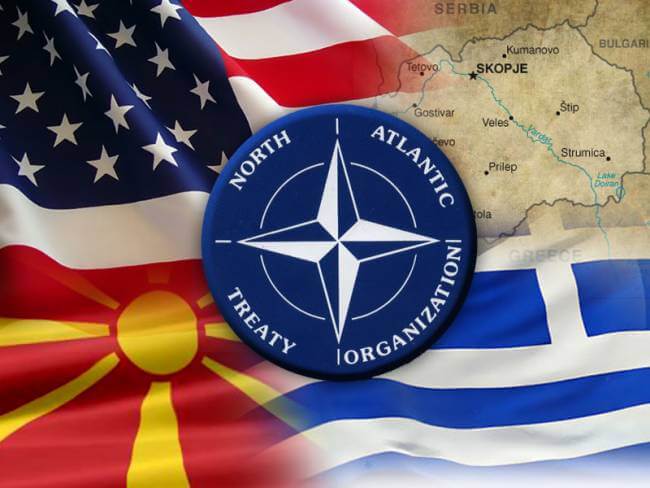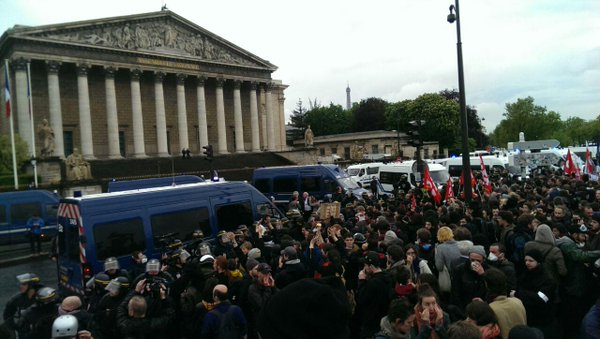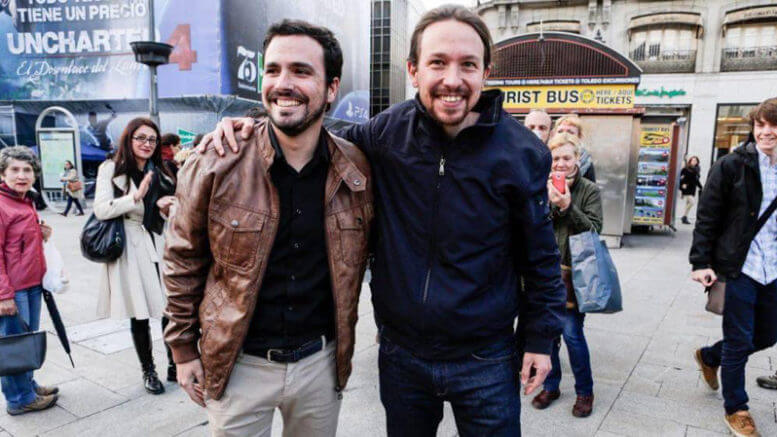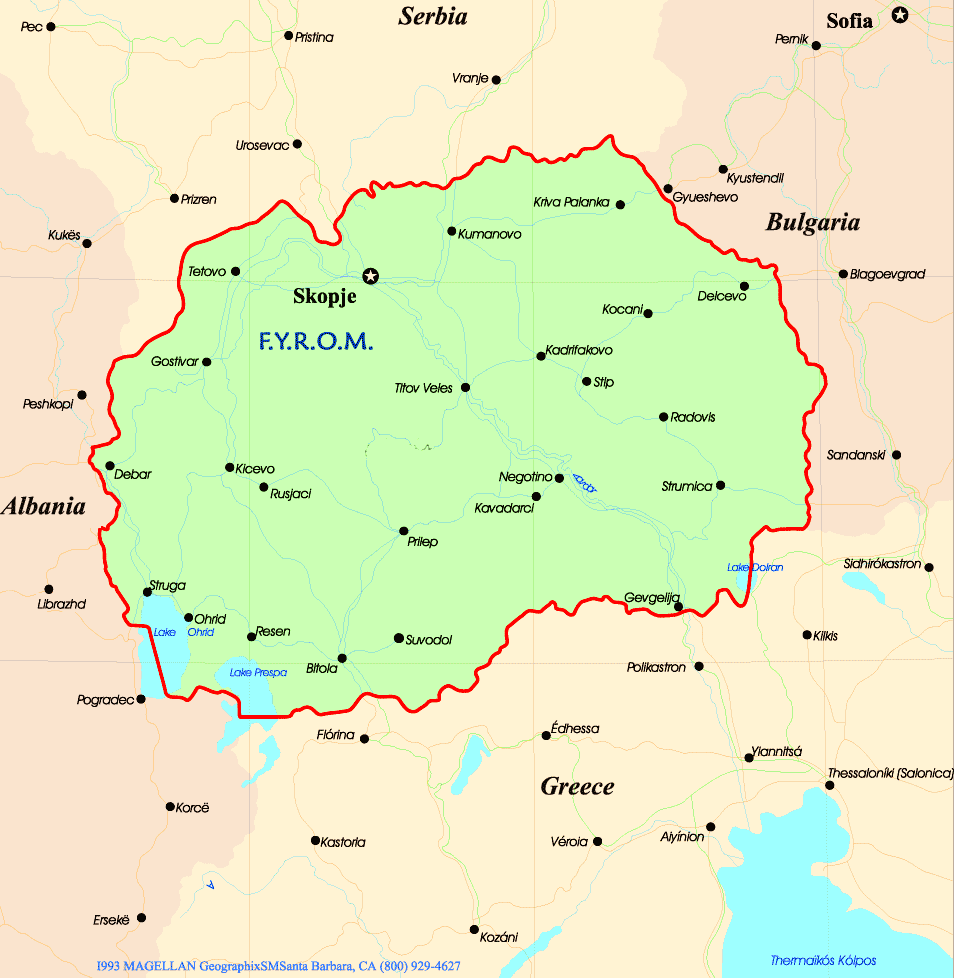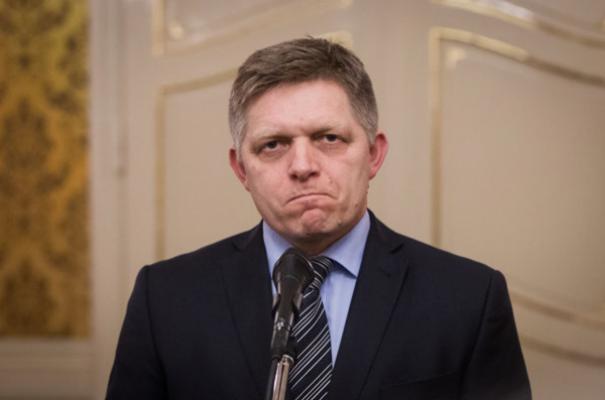*Note: We kept the terminology of the author who is calling the Former Yugoslav Republic of Macedonia as Macedonia and its main nationality as Macedonian. We want to remind that both United Nations and the European Union are not recognizing the country as Macedonia, but as FYROM, until the dispute between Greece and FYROM about its name is settled. Athens has refused to recognize FYROM as Macedonia (which is also historically the name of a much wider than FYROM region, belonging also to Greece, Bulgaria and Albania). Greek say that by using the name of the whole region as name of their country, Slav Macedonians are in fact implying territorial claims to the territory of their neighbours.
The events in Macedonia* over the past 2 years have shown that the negotiations of political elites have no capacity to bear fruitful, real or reliable solutions to systemic problems that perpetually generate space for criminal and authoritarian practice.
In May 2015, several high government officials resigned after a protest wave. The mass protests finished in a mass rally on May 17 organized by the largest opposition party, the Social Democratic Union of Macedonia (SDSM). Those resigning were exactly the ones involved in criminal activities unveiled with a wire-tap affair, the so called political “bombs”. The resignations were greeted with euphoria and framed as a victory for the mass movement. This initial victory, however, wasn’t adequately capitalized on. The energy of the civic movement dissipated when a form of symbolic protest – camping in front of the government building, replaced real protest and prevented switching to other possible methods of struggle, such as occupations or roadblocks.
In June 2015 the leaders of the four largest political parties (two from each side of the Macedonian and Albanian ethnic blocks) met in EU-brokered negotiations as a way out of the crisis, thus effectively stifling the protest movement in which many felt they were not being represented by any of these four rich and criminal political cliques. An agreement was signed providing for the formation of a temporary, technical government mandated to carry out basic reforms and organize extraordinary parliamentary elections in April 2016, along with the institution of an independent Special Public Prosecutor to process all trials stemming from the leaked wiretapped materials. In effect, the agreement only procrastinated the legal resolution of the criminal affair involving many from the ruling political elite and their business partners.
Determined to sit at the negotiating table from the outset, SDSM aimed to gain a better negotiating position with the ruling party. The anti-regime, civic protest movement that demanded democracy and systemic political change fell prey to the largest opposition party. They effectively monopolized the protests, capitalizing on the on-going street revolts in order to bargain for a share of the executive power. SDSM accepted the agreement triumphantly, presenting it as the way to achieve the “salvation of the state”.
At that time, we had warned that this EU-sponsored and elite-led method to deal with the regime crisis was flawed and would not lead to a positive outcome for the vast majority of the Macedonian people.
Prime Minister Nikola Gruevski resigned in January 2016 as stipulated in the June agreement. In his stead, a loyal party fellow stepped in as Head of the technical government. In spite of this cosmetic intervention, Gruevski remains the real political power force among а large portion of the population. Additionally, SDSM ministers in the new government, whose proportion was nominal, faced the most impudent sabotage. All decisions by SDSM ministers were annihilated at governmental level and they faced open disobedience by their corrupt administrations.
Current political situation
The Special Public Prosecutor was formed in October 2015 and despite pressure, disapproval and intimidation by the existing ruling party-controlled judicial bodies, it performed independently until April 12 2016, when the President of Macedonia nullified the raison d’etre of this body. As revealed by the leaks, President Ivanov has granted an unconstitutional, blanket amnesty for all charges against politicians involved in crimes. These attempts to give immunity to the criminal elite provoked a strong reaction and incited a new protest wave that has been lasting for almost two months now.
The ruling VMRO-DPMNE (Internal Macedonian Revolutionary Organization – Democratic Party for Macedonian National Unity), with mild support of its coalition partners, postponed the election due in April 2016 and proclaimed new election dates for June 2016. SDSM and other opposition parties declared a boycott of such elections because they thought the conditions for fair and democratic elections were not fulfilled. In the planned pre-electoral period, the Constitutional court intentionally decided to cancel an amendment from a certain law that restricts the Presidential power for amnesty as expected, giving the green light for the President to declare a broad amnesty and thus free all the 56 members of the ruling clique under enquiry, shielding them from criminal prosecution.
The decree by the President of the Republic triggered a mass revolt, beginning in the capital, but spreading immediately throughout the country. The protests were called “colorful revolution” as many protesters were expressing their rejection of the system by throwing colourful paint on the quasi-antique and quasi-baroque monuments and buildings built as part of the controversial project “Skopje 2014” (2008 – 2016), one of the most blatant examples of the criminal endeavours of this corrupt elite. The movement is demanding: cancellation of the amnesty; resignation of the President and the government; formation of a transitional government; declaration by the Constitutional Court of the legality of the Special Public Prosecutor; formation of a special unit in the Criminal Court; postponement of the election and inclusion of the civil sector in negotiations which should be held in Macedonian territory only.
President Ivanov has canceled the amnesty decree on 8th of June, and the demand for a postponement of the election has also been fulfilled. Despite the pressure on a daily basis from the protest, the retreat of the ruling clique was mainly determined by international pressure directed to Albanian parties to cancel the election. Furthermore, the SDSM is not part of the government anymore. The June agreement has been broken officially, exposing the impotence of the European Union for brokering a solution of the crimes of the ruling elite.
From what can be said now, SDSM and the opposition are practically the losers in the political struggle, but those who pay the biggest price are the people. The right-wing rule of VMRO-DPMNE characterized by drastic erosion of workers’ and human rights, decline of real workers’ wages, rising profits for a few capitalists and achievement of the greatest class division among European and former Soviet Bloc countries, for a country that once was one of the most egalitarian in terms of Gini index (which measures inequality).
Rampant clientelism and corruption, phenomena of crony capitalism, are reflected in an authoritarian regime. A small privileged layer of bureaucrats is leading the economy with brutal methods, by exploiting at their advantage the systemic deficiency of liberal democracy. This phenomenon is not restricted only to Macedonia, but is transnational – assuming different forms, magnitude and intensity – expressed in a particular sharp form in the Eastern-European bloc of countries where the bureaucratism of the Stalinist regimes was converted into bureaucratism for the reproduction of capitalism.
All this has intensified the political character of the protests after 2009. Recent protests were caused by a) new urbanistic projects, where the government is spending huge amounts of money while most of the population is in conditions of dire poverty; b) cover-up of the manslaughter of a young boy by the police; c) death of children as a result of the austerity measures in public health care; d) imprisonment of anti-governmental journalists and politicians; e) air pollution (Skopje is the most polluted European capital), etc.
What is important for the above mentioned protest movements is that they failed to achieve significant change or a retreat from the ruling elite. A mass student protest in December 2014, however, for the first time seriously challenged the ruling elite and forced them to step back. After this student protest wave, high school students and their teachers as well as the university professors entered the scene with their demands and again provoked a temporary set back to the vicious attacks of the government. Protests of part-time and self-employed workers were also successful in stopping the government’s plans to impose special taxation onto one of the most pauperized layers of intellectual workers.
The ruling elite has had a consistent strategy to gain the support of the trade union leadership. This, over the past 10 years, has resulted in the weakening and loss of support for many trade unions. The informal deal between the trade union bureaucrats and the ruling elite was reflected in extreme bureaucratic methods being applied within the trade union movement. Illegal designation of leadership, violence and intimidation at trade union meetings, ruthless expulsions of trade union members or leading cadres refusing to toe the line: similar practices are not rare. Only a few trade union branches have stood up against the measures attacking trade union rights. As we write, there has been an ongoing strike for two weeks. Trade unions in Macedonia have rapidly decreased their membership as a result of the leadership’s failure to stop the constant degradation of workers’ rights.
Another manifestation of class consciousness, beside the trade unions, is represented by the growth and strength of workers’ parties. There is no mass workers’ party in Macedonia. The main opposition party, the SDSM, has for the last 25 years been promoting liberal ideas, being instrumental in the capitalist restoration and therefore participating in the criminal sell-out of public and state property, which allowed an extremely rich layer of capitalists to emerge. SDSM identified its policies with a bourgeois-liberal agenda and has never been a social-democracy in essence. SDSM is constantly declining in membership figures, as well as voters. No matter the electoral frauds of the ruling VMRO-DPMNE, which granted them a large proportion of their electoral victories for 10 years, SDSM is not proposing an alternative to the ruling elite which is the main reason behind its decline.
The end of this rule by corrupt politicians, deeply entangled with criminal activities, cannot be achieved on the basis of appeals to morality and ethics. The real problem is the capitalist system, which has taken over this country in the periphery. For this reason, a group of anti-government activists and people who became active in the recent protests and share the same reservations and criticism to the policies of the opposition, or were part of left-wing and communist organizations, have created a political party; Levica (the Left). Some trade union leaders and activists have joined the ranks, as well as other anti-nationalists and anti-capitalists.
Levica is the first important attempt at the formation of a mass workers’ party. In many respects it falls outside the concept of a political party in Macedonian politics – uniquely against capitalism, for socialism, against the NATO treaty, for workers’ rights, for radical change of taxation system, etc. (and all without any financial support from the rich bosses, as all other parties have).
It is expected that Levica will at next parliamentary elections enter the Macedonian Parliament. For the first time in recent history the working class will have its own representatives. It will be the task of the Marxists in Macedonia to make sure that the new party develops a real revolutionary alternative to the present system.
